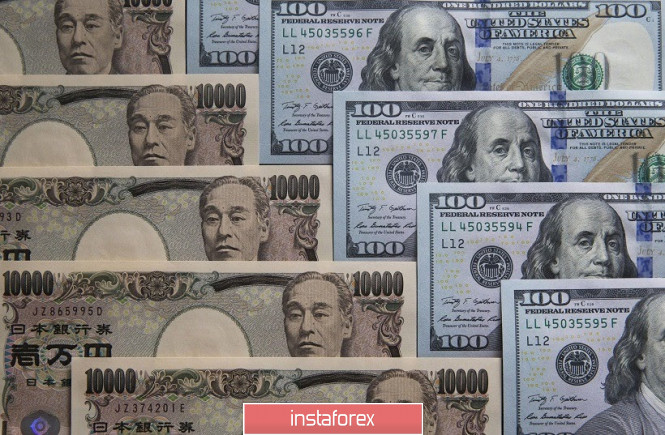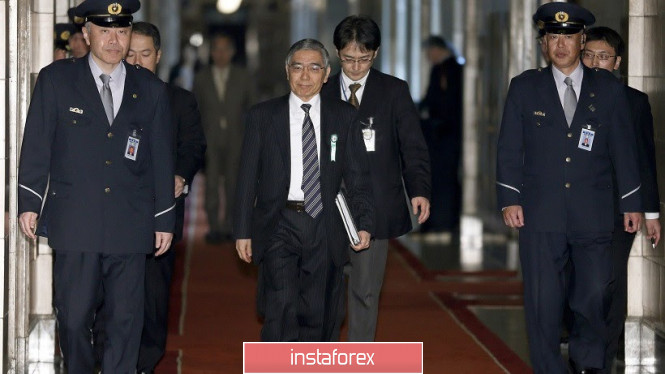Christmas Eve, Christmas Day, Boxing Day, St. Stephen's Day - the foreign exchange market continues to trade amid low liquidity. Only Japan has a peculiar role as a news provider, influencing the yen accordingly. The Japanese currency also reacts more actively to the external fundamental background - at least in comparison with other currencies of the major group. The increased risk appetite against the backdrop of a dovish speech by the head of the Bank of Japan helped the bulls of the USD/JPY pair rise by several dozen points. Nevertheless, the pair remained in the price range of 109.00-109.90, within which it has been trading for almost two weeks. To break out of this price range, bulls or bears of the pair need a more compelling information event - either from the Japanese regulator or from China/US.

Today, the head of the Japanese central bank Haruhiko Kuroda made a speech at the annual meeting of representatives of the Nippon Keidanren Business Federation. He reiterated his thesis that the regulator "without hesitation" will resort to additional measures to mitigate monetary policy if the momentum of inflationary growth fades. It is worth noting here that inflation in Japan shows an extremely weak, but still growth: the November consumer price index reached 0.5% (in annual terms), while this figure could only increase to 0.2% in October. On a monthly basis, inflation in November grew by a modest 0.2%. The consumer price index excluding the cost of fresh food (the main indicator for the Japanese regulator) in November increased by 0.4% year on year after rising 0.2% in September. In general, this dynamics did not come as a surprise to most experts - the indicator came out at the forecast level.
Weak but stable inflationary growth allows the Bank of Japan to maintain a wait-and-see attitude - the latest meetings are held in a verbal setting mode, which everyone has become accustomed to by and large. Kuroda has repeatedly shown readiness for action, but does not mean the "red lines" at the intersection of which the Bank of Japan will move from words to deeds. So far, the head of the Japanese regulator is trying to influence the situation using slightly different methods.
For example, at today's meeting, he called on major Japanese employers to increase the payroll for their employees. According to him, this will help increase consumer demand and accelerate inflation. On the one hand, this is just a recommendation from the head of the central bank. But on the other hand, it is worth considering the specifics of the relationship between Japanese business and the banking regulator. As we know, Japan is a country of financial conglomerates, industrial giants and other large holdings. Their impact on the country's economy is very significant. Kuroda several years ago already resorted to such requests, but then they could not get the situation off the ground. Now the situation is repeating itself - apparently, the head of the central bank considers the interest rate cut as a necessary measure. Despite the threats of the dovish nature voiced today, he voiced an optimistic assessment of global economic prospects. This suggests that the de facto Japanese regulator in the foreseeable future will maintain a wait-and-see attitude.

Despite the contradictory results of today's speech by Kuroda, the yen lost ground with the dollar. The Japanese currency is weakening amid a general risk appetite. Let me remind you that just recently - at the beginning of this week - relations between the United States and China again worsened, against the background of Trump's signing of the military budget for next year. This document includes the provision of military assistance to Taiwan, and the provision of support to Hong Kong protesters. The Chinese were outraged by this state of affairs, since they consider these territories part of their country. A spokesman for the Chinese Foreign Ministry threatened the United States with almost a cold war if the intentions declared by the Americans were implemented. After that, the dollar slowed down, especially against the backdrop of weak data on the volume of orders for durable goods (the only significant release this week).
But then Donald Trump tweaked the fundamental picture with his tweets - he announced that "in the near future" the ceremony of signing the first phase of the trade transaction will take place. According to preliminary data, this will happen in January, after the 86-page text of the agreement is translated and finally agreed. Trump said that next year he will "meet" with the Chinese leader, although the procedure for signing the first part of the deal will be at the ministerial level. Nevertheless, the optimistic mood of the US president encouraged dollar bulls, while interest in the yen (as a defensive asset) declined throughout the market.
Tokyo's consumer price index will be published tomorrow in Japan. This indicator is considered a leading indicator for price dynamics across the country. In normal times, this index is ignored by the market, but against the background of an almost empty economic calendar, traders can turn their attention to it. According to the general forecast, the index should demonstrate positive dynamics (growth up to 0.9%). Otherwise, the USD/JPY pair will continue its upward dynamics, at least up to the resistance level of 109.90 - this is the upper line of the Bollinger Bands indicator on the daily chart.
The material has been provided by InstaForex Company - www.instaforex.com